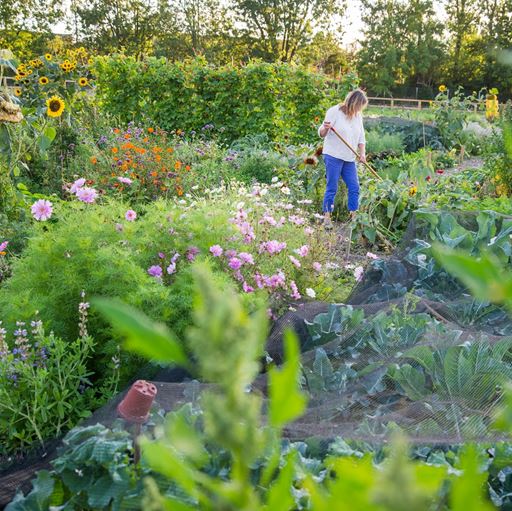CoFarming project bears fruit for Cambridge community
-
Date
Fri 18 Mar 22

A report from the University of Essex highlights how involvement in community farming appeals to young and old and leads to further community involvement.
Dr Neli Demireva, from the Department of Sociology at the University of Essex, worked with a local community-based agroecology (‘co-farming’) project, CoFarm Cambridge, to find out who volunteered with the project, what the participants learnt and if this knowledge influenced their lives and engagement with their local community.
Dr Demireva said: “Our study has shown that CoFarm Cambridge brought a range of benefits to people involved in the project as volunteers or benefiting from the production of food on the farm through the 9 food hubs which were established during the pandemic.
“We found that CoFarm’s higher aims have largely been met – to provide a reliable supply of high-quality fruit and vegetables in a safe and welcoming space where people are supported to develop and maintain good physical and mental health and wellbeing whilst immersed in nature and connected to each other.”
The study took the form of in-depth interviews with volunteers, stakeholders and food hub recipients of the over 20 months. The study found:
- volunteers demonstrate strong commitment to cofarming
- volunteers reported greater involvement with community issues and heightened awareness of food justice issues
- volunteers were able to bring a lot of energy and knowledge to the project – there was some evidence of selection as many of the interviewees had experiences with allotments, community gardening as well as strong interest in sustainability issues
- all volunteer interviewees reported that cofarming had been responsible for keeping them in good mental health during the lockdown
The project had to radically alter its way of working during the pandemic. It set up timed slots to enable volunteers to attend while maintaining social distance. During this time CoFarm Cambridge was highly productive and in 2020 donated its entire produce, more than 4,5 tonnes of organically harvested fruit and vegetables, to eight community food hubs in Cambridgeshire.
Dr Demireva said: “An interesting side-effect of the operation of strict time slots on the site was that volunteers told us they worked side by side with people they did not previously know and who they met through this activity, which broadened their networks and understanding of the community in which they live and farm. None of our interviewees questioned the decision for all produce to be donated during the Covid-19 emergency and in fact identified it as an important aspect of the joint cofarming activity.”
CoFarm Cambridge, established in 2019, is seven acres of agricultural land next to Coldhams Common. The local area is the most deprived ward in the city of Cambridge, where life expectancy is 10 years lower than in most affluent wards. The levels of hardship and economic deprivation place higher than average demands on local services.
Production of the report, Social Cohesion, Community Responses to Sustainability, Food Insecurity and Alternative Food Networks: the Case of CoFarm was enabled by funding from the Department of Sociology at Essex and the ESRC Impact Acceleration Account, which accelerates the 'real world' impact of Essex research through projects engaging with organisations who enact research-led changes.
Impact Acceleration Accounts allow research-focused universities like Essex to respond to impact opportunities in more flexible, responsive and creative ways. IAA funding builds capacity and creates opportunities for the social sciences to work across disciplines to progress research outputs and outcomes towards impact. ESRC IAAs proactively engage across their institution to build networks and leverage funding vital for sustainability of knowledge exchange and impact.




